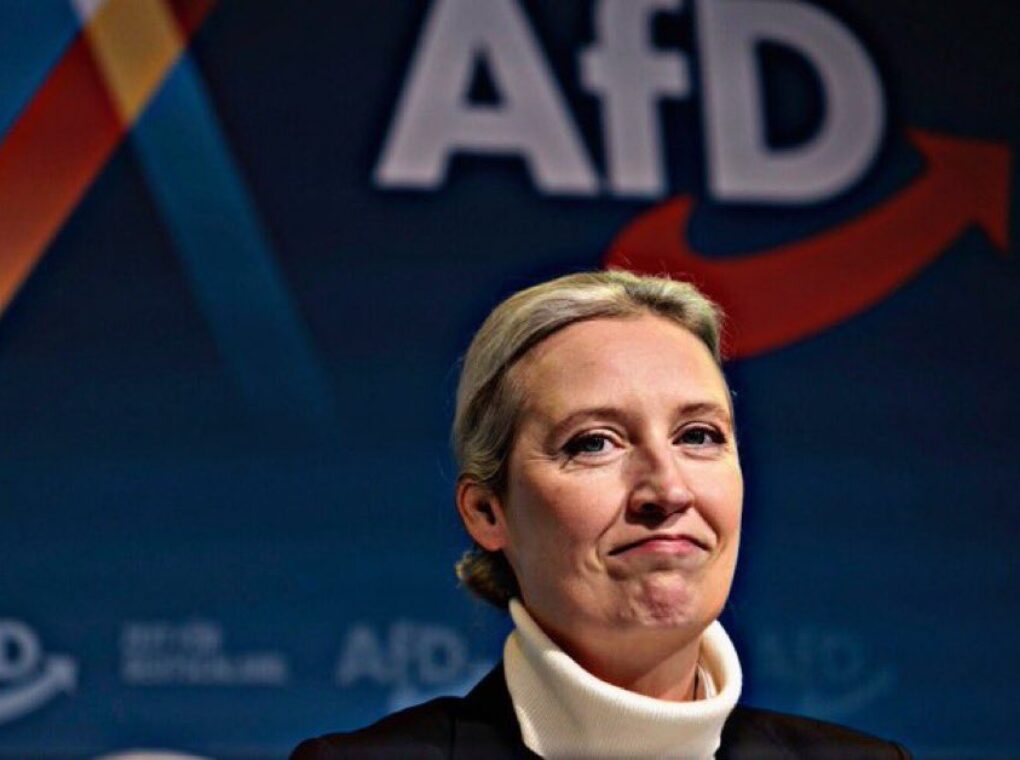In a historic moment for German politics, the Alternative für Deutschland (AfD) has surged to the top of every major national opinion poll this week, overtaking the long-dominant CDU/CSU alliance. For the first time since its founding in 2013, the AfD stands as the most popular party in Germany — a development many describe as a political earthquake.
AfD Tops the Polls
Fresh data shows the AfD commanding unprecedented support. A Forsa poll places the party at 26%, ahead of the CDU/CSU, while Ipsos puts it at 25%. Other national surveys mirror these findings, with AfD consistently ranked first.
A decade ago, the AfD was dismissed as a fringe, Eurosceptic movement that emerged during the eurozone crisis. Today, it is the central force in German politics. Analysts argue that this reflects not just the AfD’s growth but also a decline in public confidence toward the traditional parties that have shaped Germany’s postwar order.
Obstacles and Suppression Efforts
AfD’s rise comes despite years of state and institutional pushback.
Earlier this year, Germany’s domestic intelligence agency classified the AfD as a “right-wing extremist organization,” intensifying calls for restrictions and even an outright ban — an extraordinary step in a modern democracy. Party members have faced harassment, criminal probes, and relentless negative coverage in mainstream media.
The recent deaths of several AfD candidates, officially not linked to foul play, have nevertheless fueled anger among supporters and contributed to a perception of persecution.
Instead of weakening the party, these efforts appear to have strengthened its narrative: that AfD is the only genuine opposition to an establishment bent on silencing dissent.
Why AfD’s Rise Feels Inevitable?
Several forces are driving AfD’s surge.
Immigration Backlash – Public concern over migration remains powerful. High-profile crimes involving asylum seekers and cultural tensions have amplified demands for stricter border controls and the AfD’s proposed “remigration” policy.
Economic Discontent – Germany faces stagnation, high energy prices, and pressure from U.S. tariffs under President Donald Trump. Families struggle with inflation and housing shortages. AfD’s “Germany first” economic message resonates widely.
Collapse of Trust in Old Parties – CDU, SPD, and Greens have struggled to build stable coalitions or craft coherent policies. Their failures have created space for AfD to present itself as the anti-system alternative.
Digital Mobilization – AfD has mastered online platforms, bypassing traditional media and connecting directly with voters. Younger demographics, once thought resistant, are increasingly supportive: almost one in four Germans under 35 now back the party.
AfD’s Reform Germany Agenda
Party leaders present their success not as extremism but as a “Reform Germany” moment. Their platform includes:
Tighter border controls and stricter migration policies.
Reviving nuclear power and lowering energy costs.
Prioritizing German citizens in welfare, housing, and jobs.
Reducing EU influence and restoring national sovereignty.
This vision has struck a chord with voters who feel ignored by Berlin’s political class, transforming AfD into more than a protest party — a national reform movement.
Europe and the World React
The AfD’s rise is closely monitored across Europe. EU officials fear that AfD’s Euroscepticism could weaken German support for European integration. NATO allies are wary of the party’s calls for a more independent foreign policy.
But AfD’s supporters counter that Germany should no longer sacrifice its people’s interests for Brussels or Washington. To them, this is democracy in action.
A New Political Reality
Whether AfD will translate polling momentum into governing power remains uncertain. Other major parties maintain a strict “firewall” policy, refusing to form coalitions with the AfD. Yet, as the party consolidates first place nationally, pressure on that firewall will grow.
What is clear is that German politics has entered uncharted territory. Once dismissed as fringe, AfD is now the central player — a force that cannot be ignored, silenced, or suppressed. Its rise marks a turning point, not only for Germany but for Europe’s political future.
